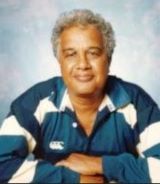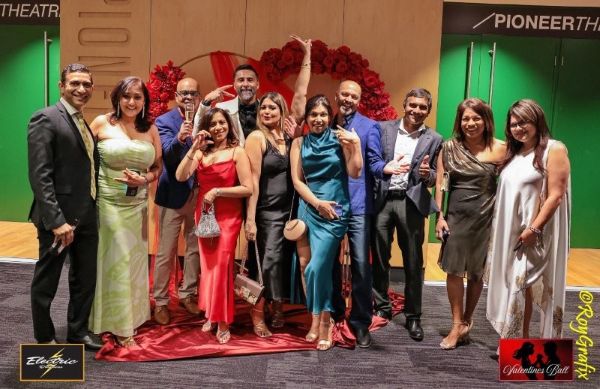Royal: The History of a Hostel & the Sociology of a School-by Michael Roberts

Source:Thuppahis
Uditha Devapriya, in The Island, 2 July 2022, with input from Uthpala Wijesooriya, Pasindu Nimsara, and Keshan Themira & archival images courtesy of the J. R. Jayewardene Centre
Somewhere in July, the Hostel of Royal College, Colombo will unveil its annual Day. Organised after seven long years, the Hostel Day will incorporate a number of aesthetic, cultural, and sports events. Many of them have been held over the last two months and a few are yet to be finalised. In the face of an unprecedented economic crisis, it has been a challenge to have held them at all. For the residents of the Hostel, it has also been a baptism of fire, no less than a continuation of what was once a long tradition.


the young co-authors Royal Colleg Hostet – Group Photo
The Royal College Hostel has not had an unbroken and continuous history. Unlike most public school boarding establishments, it has been shut down and reopened frequently. Over the last few decades, it has also witnessed much change. From a historical-sociological perspective, its story even provides an insight into Sri Lanka’s modern history.
Established on the recommendation of the Colebrooke-Cameron Commission, the first avatar of Royal College, the Colombo Academy, did not open a boarding establishment for its first 30 years. Official records tell us that its first boarding establishment was founded somewhere in the mid-1860s by the then Principal, Barcroft Boake. Considered the leading tutor of his day, Dr Boake felt the need to provide a separate residence “for the sons of planters and Ratemahattayas.” Since the latter crowd made up much of the population in the school, it made sense to open a separate lodging for them.
Boake took an active interest in the boarders. He would join them for breakfast and dinner, sitting at the head of the table. Yet despite his efforts, the number of boarders “never exceeded 36.” Under two subsequent heads of the establishment, George Hawkins and Ashley Walker, it reduced to 10. This was despite a prestigious award at the Academy, the Lorenz Prize, stipulating residence at the boarding as one of its conditions.
In 1881 the Colombo Academy became the Royal College. Much earlier it had anchored at San Sebastian Hill, near the Beira Lake. We are told that around 1905, because of an illness brought on by its proximity to the Lake, the boarding was indefinitely shut down. Six years later, the school shifted to Thurstan Road, in Colombo 7. Official records inform us that past pupils lobbied for the construction of a hostel there. Yet the government of the day, led by several highly conservative officials, rejected their requests. Having spent Rs 250,000 for the shift to the new location, they were in no mood to spend more on a hostel.
In 1931 the country held its first State Council election. Signalling the shift to universal franchise, the first and second State Councils appointed a Board of Ministers who chaired a number of Executive Committees, in various areas of specialisation. Appointed as Minister of Education, C. W. W. Kannangara became the voice of reform in his domain. In 1939, on the eve of World War II, the Royal College Union advanced Rs 1,000 for a new boarding. For this Kannangara gave his approval and blessings. The official roll of the new Hostel that year listed 26 boarders. When it shifted to Bandarawela in 1941, the number rose to 48. It would increase to 50 five years later, when the school moved back to Colombo.
These were deeply transformative years. Both Royal College and the Hostel felt their impact. In 1939 Kannangara convened a Special Committee on Education. Four years later, it tabled a Report. Among its recommendations was a free education scheme for all children, from school to university. Though opposed by certain groups, Kannangara’s scheme became the cornerstone of the country’s education system. More significantly, it led to the entry of non-elite groups to colonial institutions, including public schools.
Both Royal College and the Hostel were compelled to accommodate these developments. In 1951, the Minister of Education, E. A. Nugawela, noted that since Kannangara’s proposals, “the Royal College is no more a school for the rich and privileged classes.” Observing that 317 of 519 parents worked as “peons, labourers, chauffeurs, and so on”, he concluded that the school had opened its gates to “the lower-middle class.” Such a trend could not be averted, much less reversed. It accompanied another more significant transition: the “indigenisation” of colonial institutions.
In 1946, Royal College appointed its first Ceylonese Principal, J. C. A. Corea, who took over from E. L. Bradby. That year it also appointed Bernard Anghie as the Hostel Warden. The records state that Anghie strived to renovate the Hostel. His successor, Cecil Belleth, saw through and added to his changes. By the time Belleth retired in March 1966, the Hostel had inaugurated various clubs, including Debating Societies and Literary Associations, turning into a league of its own. The impact of these individuals there was such that today, the four Hostel houses – Bradby, Corea, Anghie, Belleth – bear their names.
In the longer term, these developments led to a rise in the number of Hostellers. In 1961 there were 93 boarders. In 1967 the Hostel was closed on the orders of the Education Ministry, to be reopened in 1971. Two years later the number of boarders had increased to 140. By 1979, it had risen to 250, shooting up to 252 in 1986 and 300 in 1992.
The Hostel, as it stands today, consists of about 27 buildings. These include 10 dormitories, with separate quarters for Grade 10 and Grade 11 boarders; a Senior Prefects’ Room; a Library; and a Smart Classroom. Over the last year a number of these units, including the Music Room, have been renovated. Prefects are selected from three batches, numbering 20 in total, of whom five are currently in Grade 13. The students are governed by a set of rules and regulations, extending to lunch and sleeping hours. Led by a dedicated staff, including its Warden, Janaka Jayasinghe, they try to keep the place going, adhering to timetables and routines which devolve responsibility on all.
As with almost every educational establishment, the Hostel has been forced to keep up with growing demand. It encountered its biggest spurt between 1977 and 1995. These were years of expansion in the education system, fuelled in part by the Grade V Scholarship Exam: from 3,629 in 1977, the number of scholarship awards shot up to 22,000 in 1992. Since most, if not all, the Hostellers are Grade V Scholars, the Hostel has effectively become a symbol of mobility, for those whose children tend to obtain the highest scores for the Exam. This is perhaps the most significant development yet.
How does one explain such trends? In Sri Lanka the shift from colonial status to independent statehood was accompanied by a transition in elite institutions. Yet while the colonial elite lost their position of dominance in these institutions, the latter were eventually taken over, not by the rural and urban poor, but by an intermediate, Sinhala and Tamil speaking milieu. That has been most evident in elite schools like Royal College.
Surveying Europe’s education system, the French sociologist Agnès van Zanten has noted the contradiction between the elite background of these schools and the changes they have undergone owing to various external pressures. The contradiction here has to do with what she calls their “charters” or “mandates”, which have changed with the expectations of dominant groups. As van Zanten points out, these groups have, over the last few decades, radically evolved or given way to other milieus.
This is as applicable to Sri Lanka as it is to Europe. Since independence, the country’s elite schools have witnessed a shift from bourgeois and aristocratic ideals to a middle bourgeois ethic, emphasising not family background, but academic merit. In that scheme of things, exams like the Grade V Scholarship have enabled an intermediate social group to gain entry to them. Since most of these scholarship holders hail from villages, far away from Colombo, boarding establishments, and hostels, serve as temporary residences.
The history of the Royal College Hostel, in that sense, bears testimony to the evolution of Royal College and other secondary schools. From an enclave for “the sons of planters and Ratemahattayas”, it has become a second home for the sons of an upward aspiring, rural middle bourgeoisie. That represents a shift in social, cultural, even political power, not just in the country’s secondary schools, but in the country itself. Yet for some reason, this area has not been examined as much as it should have been by social scientists. It should be, especially since it provides a unique and fascinating insight into the changing face of Sri Lankan society.
***************
 Uditha Devapriya is an international relations analyst, researcher, and columnist based in Sri Lanka who can be reached at udakdev1@gmail.com. Uthpala Wijesooriya [wijesuriyau6@gmail.com], Pasindu Nimsara [pasinim19@gmail.com], and Keshan Themira [themirak35@gmail.com] are members of the Royal College Hostel Prefects’ Council of 2022.
Uditha Devapriya is an international relations analyst, researcher, and columnist based in Sri Lanka who can be reached at udakdev1@gmail.com. Uthpala Wijesooriya [wijesuriyau6@gmail.com], Pasindu Nimsara [pasinim19@gmail.com], and Keshan Themira [themirak35@gmail.com] are members of the Royal College Hostel Prefects’ Council of 2022.

























